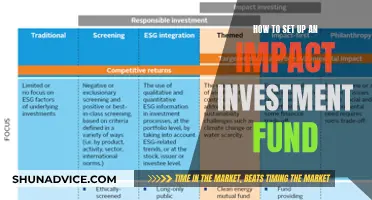
Tax-exempt money market funds are a type of mutual fund that can be a smart way to reduce your income taxes, but they're not for everyone. These funds invest in highly liquid, short-term instruments like cash, cash-equivalent securities, and high-credit-rating debt-based securities. They are intended to offer investors high liquidity with a very low level of risk. While they can be a great short-term investment option, they are not suitable for long-term investment goals like retirement planning as they don't offer much capital appreciation.
| Characteristics | Values |
|---|---|
| Investment type | Mutual fund |
| Investment objective | Income consistent with principal preservation |
| Investment strategy | Invests in highly liquid, short-term instruments |
| Risk | Very low |
| Returns | Low |
| Tax | Exempt from federal income tax |
| Suitability | Short-term investment goals, not retirement planning |
| Advantages | High liquidity, low volatility, tax advantages |
| Disadvantages | Low returns, sensitive to interest rate fluctuations |
What You'll Learn

Pros and cons of tax-exempt money market funds
Tax-exempt money market funds are a type of mutual fund that invests in highly liquid, short-term instruments. These funds are designed to offer investors high liquidity with a very low level of risk. While tax-exempt money market funds can be a smart way to reduce your income taxes, they have their own pros and cons that you should consider before investing.
Pros of Tax-Exempt Money Market Funds:
- Tax-Exempt Funds: One of the biggest advantages of these funds is that they are exempt from federal income taxes, and in some cases, even state income taxes. This can result in significant tax savings, especially for those in higher tax brackets.
- High Liquidity and Low Risk: Money market funds are known for their high liquidity, allowing investors easy access to their money. They are considered low-risk investments because they invest in secure, short-term, and highly liquid instruments.
- Regular Income: These funds aim to maintain a net asset value (NAV) of $1 per share, which means regular dividend payments to investors.
- Diversification: Tax-exempt money market funds often invest in a diversified portfolio of municipal securities, providing investors with exposure to a variety of instruments.
Cons of Tax-Exempt Money Market Funds:
- Lower Yields: Tax-exempt funds typically produce lower yields compared to other investments. Therefore, if you are not in a higher tax bracket, you may not save enough in taxes to make up for the lower yields.
- Not Suitable for Long-Term Goals: Money market funds are not designed for long-term investment goals like retirement planning because they offer little capital appreciation. They are better suited for parking cash temporarily before investing elsewhere.
- Sensitivity to Interest Rates: Money market funds are sensitive to interest rate fluctuations, which can impact their overall returns.
- Limited Capital Appreciation: While these funds provide regular income through dividends, they may not offer significant growth in the value of your initial investment.
Index Funds: Long-Term Investment Strategies Explored
You may want to see also

How to choose the right fund
Tax-exempt money market funds can be a smart way to reduce your income taxes, but they are not for everyone. Before choosing a fund, it is important to ask yourself a few questions. Firstly, determine if you are investing outside of an IRA or another retirement plan. Including a tax-exempt fund in an already tax-advantaged account will not bring any additional benefits and may cause you to give up potential yields. Secondly, consider whether you fall into one of the higher tax brackets. If you are not in a higher tax bracket, a tax-exempt fund is probably not the right choice, as you are unlikely to save enough in taxes to make up for the lower yields that tax-exempt funds typically provide.
If you answered "yes" to both of the above questions, you may want to consider investing in a tax-exempt fund. When choosing a fund, it is important to look at a few key factors. Firstly, check what is available in your brokerage account, as not every money market fund is offered by all brokers. Secondly, decide which type of money market fund is right for you. If you are investing through a taxable brokerage account, an in-state municipal money market fund can provide you with completely tax-free income, which is a valuable benefit. On the other hand, if you are investing through a tax-advantaged account, you don't need to worry about taxes and can instead focus on choosing a fund with the highest yield.
When evaluating different funds, it is important to look beyond just the yield. Funds may also have expense ratios, or annual percentage fees, as well as one-time buying or selling fees. To determine which fund is the best choice, subtract any expense ratios and fees from the yield to get a more accurate picture of the fund's returns.
- Fidelity SAI Municipal Money Market (FMQXX)
- Vanguard Municipal Money Market Inv (VMSXX)
- Invesco Treasurer's Ser Tr Prem TxEx Ins (PEIXX)
L&T India Value Fund: A Smart Investment Strategy
You may want to see also

Taxable vs. tax-free funds
When considering investing in a mutual fund, one of the key decisions you will need to make is whether to opt for a taxable or tax-free fund. Both options have their own advantages and considerations, and the right choice for you will depend on your individual financial situation and goals. Here is a detailed comparison of the two types of funds to help guide your decision-making process.
Taxable Funds
Taxable money market funds, also known as prime money market funds, typically offer higher yields than their tax-exempt counterparts. These funds invest in corporate and bank debt issued by entities within the US and internationally. While the income generated by these funds is subject to taxes, they can still be a good option for investors who are not in the highest tax brackets. It is important to carefully weigh the potential returns against the amount you expect to pay in taxes.
Tax-free Funds
Tax-free mutual funds, on the other hand, are comprised of municipal bonds and other government securities. The main advantage of these funds is that their returns are often exempt from taxes at both the state and federal levels. This feature can provide added comfort to risk-averse investors. However, it is important to note that tax-free funds generally provide lower pre-tax returns compared to similar securities issued by non-governmental entities. When considering a tax-free fund, be sure to evaluate the total after-tax returns in comparison with taxable funds. Additionally, if your returns will be held in a qualified pension or retirement plan, where they can accumulate tax-deferred, the benefits of a tax-free fund may be less relevant.
Both taxable and tax-free funds have their advantages and considerations. Taxable funds offer higher yields but are subject to taxes on income, while tax-free funds provide the benefit of tax-exempt returns, albeit with lower pre-tax returns. To make an informed decision, carefully assess your financial situation, tax bracket, and investment goals. Additionally, keep in mind that tax-exempt funds are generally more suitable for investors outside of a retirement plan and those in higher tax brackets.
Global Funds: Where Are They Invested?
You may want to see also

Calculating tax-free yields
Tax-exempt money market funds are a type of mutual fund that invests in short-term, highly liquid, and low-risk instruments. These funds are designed to provide investors with a regular income while also offering tax advantages. When deciding between a taxable and a tax-free fund, it is important to calculate the tax-free yield to determine if the savings outweigh the lower yield.
To calculate the tax-free yield, you can use the following equation:
Taxable equivalent yield = tax-free yield / (1 - marginal tax rate)
For example, if you are in the 24% tax bracket and are choosing between a taxable fund with a 1.5% yield and a tax-free fund with a 1.3% yield, you can use the formula to find the taxable equivalent yield:
013 / (1 - 0.24) = 0.0171 or 1.71%
In this case, the tax-free fund provides a better yield after taking into account the tax savings. This calculation is especially beneficial for those in higher tax brackets.
It is important to note that tax-exempt funds may not be suitable for everyone. If you are investing outside of a retirement plan, such as an IRA, you may not gain any additional benefits by including a tax-exempt fund. Additionally, if you are in a lower tax bracket, the tax savings may not be significant enough to make up for the lower yields typically associated with tax-exempt funds.
Before investing in any fund, it is essential to carefully consider your financial goals, risk tolerance, and tax situation to determine if the investment aligns with your objectives.
Equity Income Funds: Smart Investment for Steady Returns
You may want to see also

Risks of investing in money market funds
Money market funds are a type of mutual fund that invests in highly-rated, short-term debt securities. They are considered low-risk investments and are suitable for those with a low tolerance for volatility. However, as with any investment, there are risks involved. Here are some of the risks associated with investing in money market funds:
- Credit Risk: Money market funds are not insured by the Federal Deposit Insurance Corporation (FDIC). While they invest in high-quality securities, there is a risk of losing money, and there is no guarantee that you will receive $1 per share when redeeming your shares.
- Inflation Risk: Due to the safety and short-term nature of the underlying investments, money market fund returns may not keep up with inflation, leading to a potential loss in purchasing power.
- Liquidity Risk: Money market funds may impose a fee upon the sale of shares, which can impact returns, especially for investors with small investments.
- Price Risk: The share price of a money market fund can fluctuate, and investors may sell their shares for more or less than the original purchase price.
- Institutional Money Market Funds: These funds are subject to a mandatory liquidity fee if net redemptions exceed 5% of net assets in a single day.
- Interest Rate Risk: Money market funds are sensitive to interest rate fluctuations, and returns may be impacted if interest rates change.
- Low Returns: Money market funds typically offer low single-digit returns, which may result in a lost opportunity for better returns in other investments, such as stocks or corporate debt issues.
- Expenses: Annual fees can eat into the profits of money market funds, especially when returns are already low.
- No Federal Insurance Protection: Unlike money market accounts at banks, money market funds are not insured by the FDIC. In the case of a fund collapse, investors may lose some or all of their money.
Diversifying Mutual Fund Investments: A Smart Strategy?
You may want to see also







